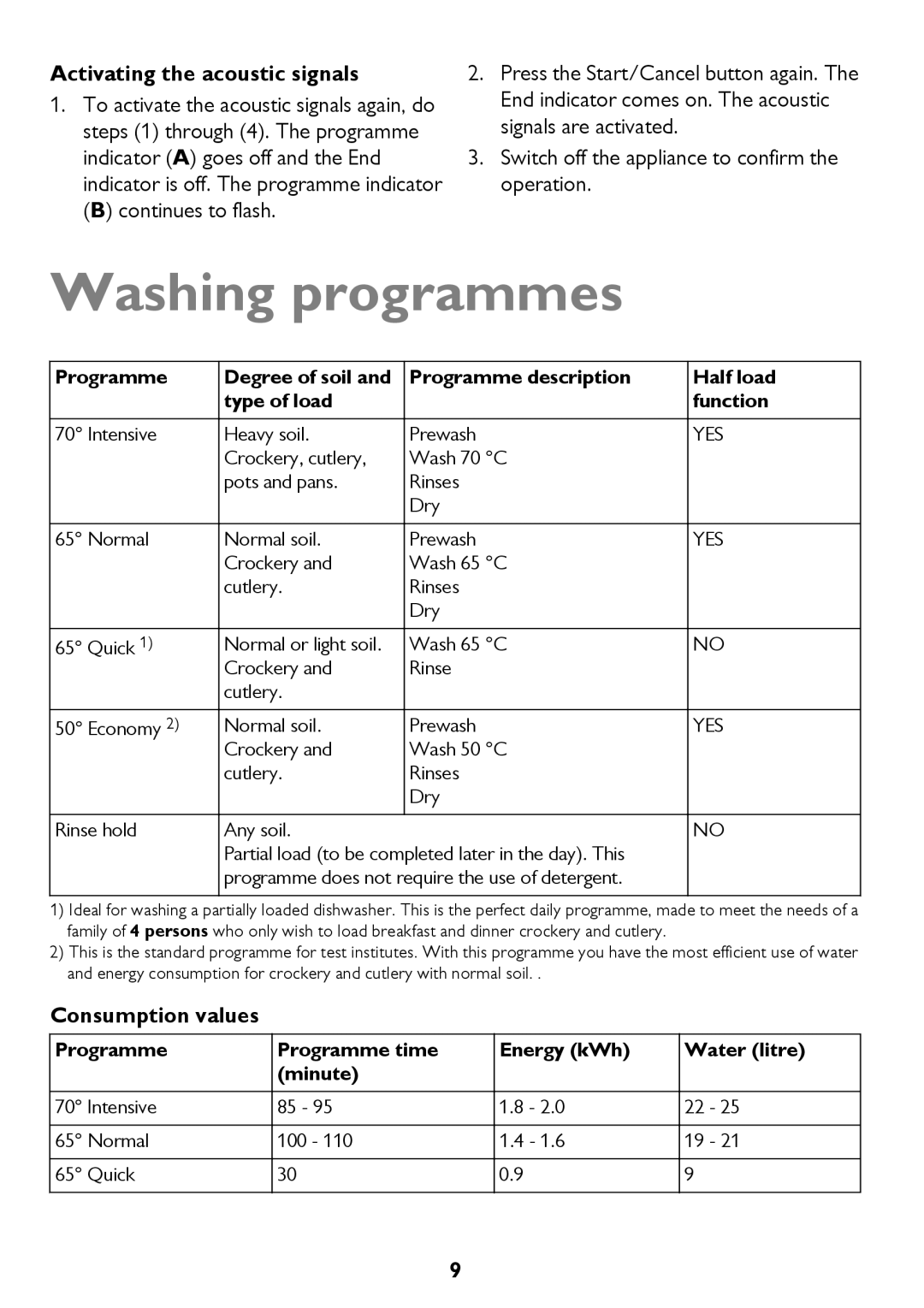JLBIDW 1201 specifications
The John Lewis JLBIDW 1201 is a standout in the market of high-performance dishwashers, combining efficiency with modern technology to meet the demands of today’s households. This appliance is designed to not only ease the burden of dining cleanup but also to provide a sustainable and user-friendly experience.One of the main features of the JLBIDW 1201 is its impressive energy efficiency rating, which ensures that it operates with minimal energy consumption while delivering optimal washing performance. This makes it an environmentally friendly choice for consumers seeking to reduce their carbon footprint and lower utility bills. The dishwasher operates quietly, with noise levels reaching as low as 42 decibels, allowing users to run cycles without disrupting the household atmosphere.
The JLBIDW 1201 boasts multiple wash programs, including eco, intensive, and quick wash settings, catering to various cleaning needs. The eco mode is particularly notable, as it optimizes water and energy usage while still delivering a thorough clean, making it an excellent choice for everyday dishes. The intensive mode is perfect for heavily soiled pots and pans, while the quick wash option is ideal for those in a hurry.
Another key characteristic of the JLBIDW 1201 is its spacious interior, which can accommodate up to 12 place settings. The adjustable racks and foldable tines provide versatility and maximize loading capacity, while ensuring delicate items remain secure during the wash cycle. The top rack is designed to handle larger utensils and smaller items, adding further convenience for users.
This dishwasher includes advanced technologies such as a soil sensor, which intelligently adjusts the wash cycle duration based on the level of soil detected on dishes. Additionally, the appliance is equipped with a delay start feature, allowing users to schedule operations during off-peak hours. This not only saves energy but also enhances convenience, as dishes can be washed at a time that suits the user's lifestyle.
For users concerned about water usage, the JLBIDW 1201 employs a smart water management system, ensuring optimal water flow that reduces waste. The appliance also features an easy-to-use control panel with a digital display, providing clear information on cycle status and remaining time.
In conclusion, the John Lewis JLBIDW 1201 is a remarkable dishwasher that embodies efficiency, versatility, and modern technology. With its user-friendly features, quiet operation, and environmentally conscious design, it is an ideal choice for families and individuals alike. Whether you are dealing with everyday tableware or the aftermath of a dinner party, the JLBIDW 1201 promises to deliver exceptional cleaning performance with ease and reliability.
